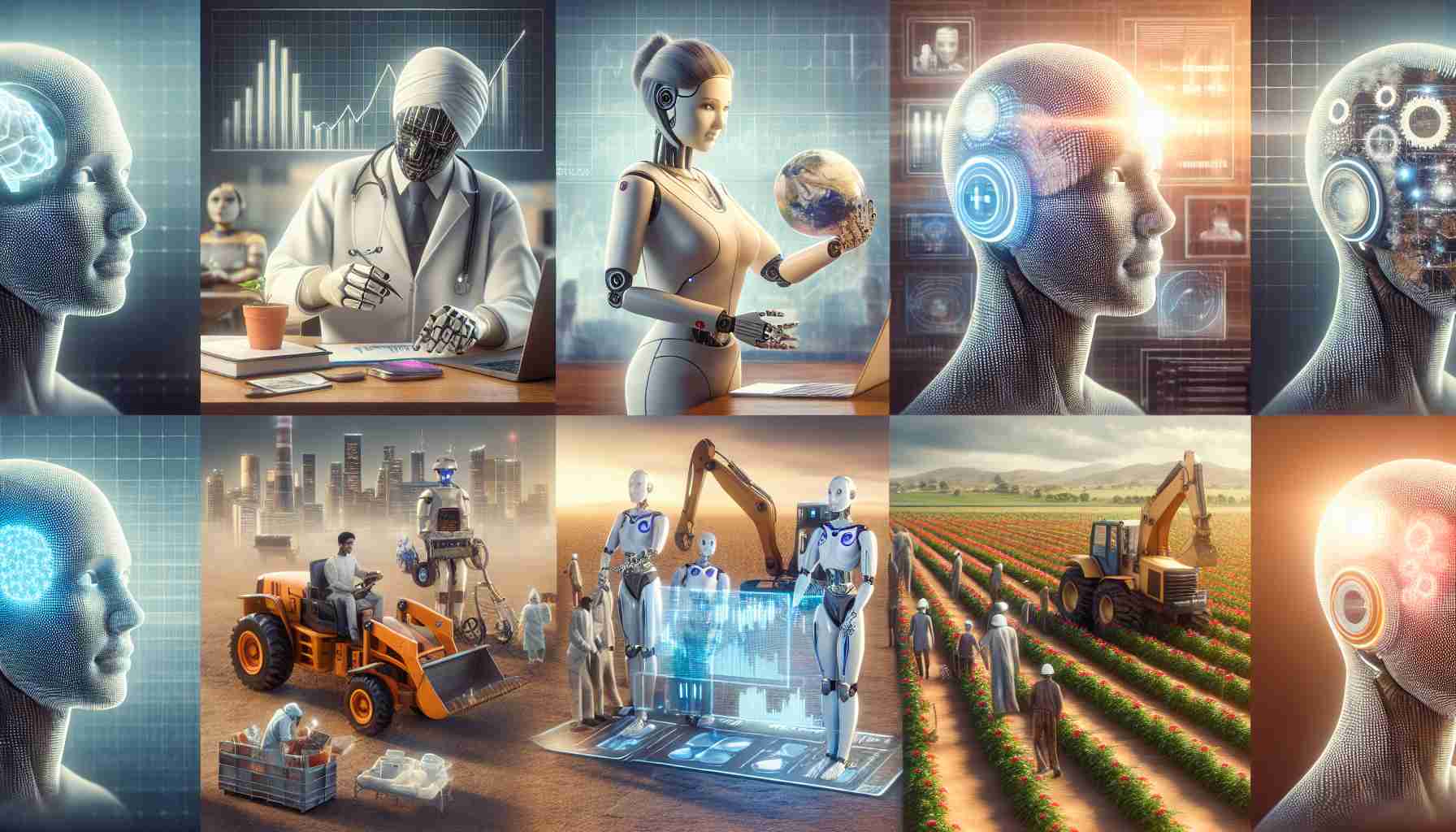Jobs
Artificial Intelligence Impact on Future Job Market

Data Entry and Administrative Tasks:
The rise of Artificial Intelligence poses a significant threat to jobs focused on data entry and administrative tasks. AI excels in processing and organizing vast amounts of data quickly and accurately, making these roles highly susceptible to automation. Systems powered by AI can input, organize, and manage data more efficiently than humans, reducing errors and allowing employees to focus on more complex activities.
Manufacturing and Assembly Lines:
In the manufacturing sector, Artificial Intelligence and robots have become essential, particularly in repetitive physical tasks. Robots equipped with AI can perform tasks such as product assembly, welding, packaging, with greater precision and efficiency than humans. These systems are particularly useful in high-volume production settings, enabling continuous operation, reducing costs, and increasing productivity.
Retail Sales:
Artificial Intelligence has made significant strides in retail sales, with increasing implementation of automated checkout processes and self-service kiosks in supermarkets and retail stores. AI-powered systems can handle transactions independently, manage inventory, provide personalized shopping experiences, and facilitate automated payment processes, diminishing the need for human cashiers.
Core Analytical Roles:
Basic analytical functions, such as financial analysis or report generation, are also shifting towards automation. AI systems can process large data sets, identify trends, and create reports faster and more accurately than humans. This automation is particularly beneficial for tasks involving routine data analysis, paving the way for more sophisticated analytical roles that require human creativity and problem-solving skills.
Graphic Design for Beginners:
Artificial Intelligence tools are now capable of producing basic design elements and automating simple graphic design tasks that previously required human designers. These tools can create logos, social media posts, and even website layouts efficiently and cost-effectively, posing a threat to entry-level graphic design jobs.
Translation Services:
The field of translation has been significantly impacted by AI, with increasingly advanced automated translation services. While accurate language understanding and cultural context still require human expertise, beginner translation roles involving direct text translation are particularly vulnerable to automation.
Routine Photography:
AI has also revolutionized corporate photography by automating basic photography tasks such as capturing web shots or company events. AI-powered systems can adjust lighting, framing, and even editing to produce high-quality images with minimal human intervention. While complex and creative photography still demands human talent, routine corporate photography tasks are increasingly handled by AI.
Adaptation and Creativity:
As Artificial Intelligence continues to evolve, it is crucial for workforce preparation to focus on areas where human creative and problem-solving abilities are irreplaceable. By embracing change and developing skills that complement intelligent systems rather than compete with them, humans can ensure harmonious coexistence with AI, enhancing human potential rather than replacing it.
New Horizons in Artificial Intelligence Impact on Future Job Market
As Artificial Intelligence (AI) continues to shape the landscape of the job market, new challenges and opportunities are emerging that demand closer examination. While the previous article touched on various aspects of how AI is affecting different job sectors, there are additional facets to consider in understanding its impact on future employment trends.
Key Questions:
1. How will the rise of AI impact job creation in emerging industries?
2. What are the ethical implications of AI replacing human workers in certain roles?
3. How can workers adapt and upskill to remain competitive in an AI-driven economy?
4. What regulatory measures are needed to ensure a balanced transition in the job market?
Advantages:
One of the key advantages of AI in the job market is increased efficiency and productivity. Automation powered by AI can streamline processes, reduce errors, and free up human resources for more strategic and creative tasks. Additionally, AI technologies can help businesses make data-driven decisions faster and more accurately, leading to improved outcomes and innovation.
Disadvantages:
On the flip side, the automation of jobs through AI can lead to displacement of workers in certain industries, raising concerns about job security and income inequality. The rapid advancement of AI also poses challenges in terms of maintaining privacy and data security, as well as potential biases embedded in AI algorithms that may perpetuate social inequalities.
Challenges:
One of the key challenges associated with the increasing integration of AI in the job market is the need for continuous learning and upskilling. Workers will need to adapt to new technologies and develop skills that complement AI capabilities to remain competitive. Moreover, the ethical implications of AI replacing human jobs and the societal impact of widespread automation are subjects of ongoing debate and scrutiny.
In navigating these challenges and opportunities, it is essential for individuals and organizations to strive for a balance between harnessing the benefits of AI while safeguarding human rights and dignity in the workplace. By embracing a mindset of adaptation and creativity, humans can leverage AI as a tool for empowerment and innovation, ensuring a future where technology and human potential coexist harmoniously.
For more insights on the evolving relationship between AI and the job market, visit Oxford Martin School.










